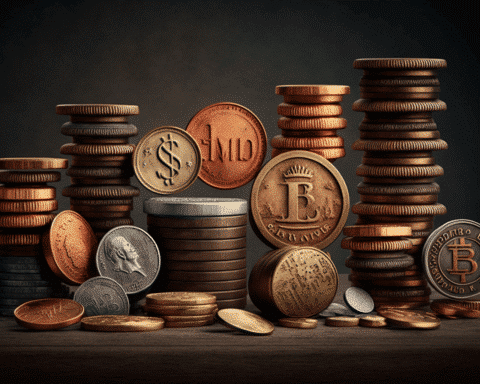Making at least the minimum monthly payment on your credit card balance is a start. If these payments don’t strain your budget, it can be tempting to set them on autopilot and disregard the overall cost of your debt.
“Life has become incredibly hectic,” says Delia Fernandez, a certified financial planner and founder and president of Fernandez Financial Advisory LLC in Los Alamitos, California. “There’s always something more pressing, particularly for those who aren’t in a financial crisis.”
However, according to the Federal Reserve, this complacency can be expensive, especially with average credit card interest rates reaching 20.4% as of November 2022. NerdWallet’s 2022 American Household Credit Card Debt Study, conducted by Harris Poll, found that U.S. households with revolving credit card debt are paying an average of $1,380 in interest this year.
The silver lining is that investing a little time and money in altering your payment habits can be highly beneficial.
FOCUS ON TOTAL INTEREST COSTS, NOT JUST MONTHLY PAYMENTS
While monthly interest payments may seem manageable, this perspective neglects how interest accumulates over time.
“Making only minimum payments and paying the average interest rate could cost you thousands over many years if you’re paying down a $10,000 balance,” says Bruce McClary, senior vice president of membership and communications at the National Foundation for Credit Counseling. “It’s astonishing how expensive it can be.”
Assuming a 20.4% interest rate and minimum credit card payments of around 2% of the total amount owed, you would make monthly payments of $200 on a $10,000 balance. It would take nearly nine and a half years to clear the debt, and you would spend $12,508 in interest, more than doubling the overall cost of your debt.
This scenario assumes no additional debt. If you continue to use the card for new purchases, the debt cycle will worsen. It’s best to switch to debit or cash for everyday purchases to avoid paying even more interest.
“It’s crucial to examine the details that might make you uncomfortable because it’s better to be informed than in the dark,” McClary says. “Even if your budget is balanced each month and you’re making payments on time, you need to understand the true cost of your debt.”
SMALL ADJUSTMENTS CAN LEAD TO SIGNIFICANT SAVINGS
Two ways to reduce your debt cost are to increase your payments and lower your interest rate.
Using the $10,000 balance example, let’s say you can afford an extra $10 per week or $40 per month toward your debt. By paying $240 per month instead of $200, you’ll save $4,966 in interest and pay off your debt almost three and a half years earlier. Even if you’re already making more than the minimum payment, increasing it further can make a noticeable difference.
Alternatively, negotiate a lower interest rate with your credit card issuer. Reducing your interest rate from 20.4% to 18% (while still paying $200 a month) will decrease your interest by $3,886 and shorten your repayment period by a year and seven months.
Here are some ways to reduce your interest rate:
- ASK FOR IT: Call the number on the back of your credit card to inquire about your eligibility for a lower interest rate. The worst-case scenario is they say no, but you won’t be penalized for asking.
- TRANSFER DEBT TO A LOWER-INTEREST OPTION: If you have good or excellent credit, consider a balance transfer credit card with a 0% interest rate promotion. This can provide you up to nearly two years to pay debt interest-free. Alternatively, a personal loan may offer a lower interest rate than your credit card.
COMBINE LARGER PAYMENTS AND LOWER INTEREST FOR MAXIMUM SAVINGS
To significantly reduce the cost of debt, increase your monthly payment and pursue a lower interest rate.
Paying $240 a month toward a $10,000 debt at 18% interest would result in a $6,697 reduction in total interest payments (compared to your initial situation) and allow you to pay off your debt almost four years earlier.
“It’s the compound interest at higher rates that hurts people,” Fernandez says. “You want to be the one who understands it and benefits from it. You don’t want to be the one who pays it and makes credit card companies wealthy.”
Ignoring the actual cost of debt can lead to unnecessary expenses and prolonged repayment periods. By making minor changes to your payment habits and actively seeking lower interest rates, you can save thousands of dollars and shorten your path to financial freedom. Don’t let complacency and inertia dictate your financial future; take control and start making smarter decisions today.




